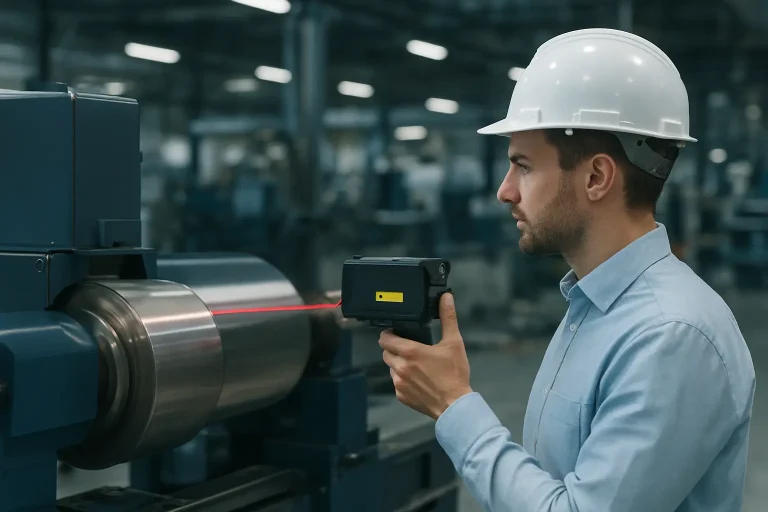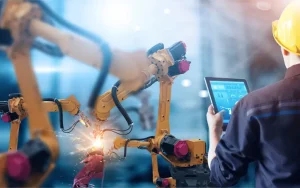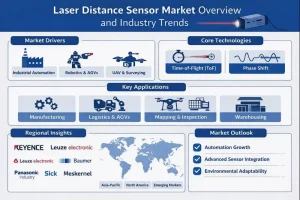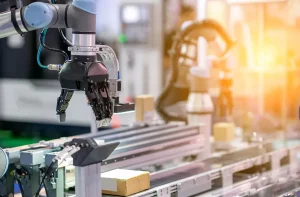Demand for Laser Measurement Solutions Rising: Understanding the Trend
Laser Measurement Solutions are becoming increasingly essential across various industries, marking a significant shift in how precise data collection and quality assurance processes are conducted. This growing demand is driven by the industry’s pursuit of accuracy, speed, and efficiency in manufacturing, construction, and research. As technology advances, laser measurement tools are evolving to meet these requirements, offering unparalleled precision that traditional measurement techniques often cannot achieve.
What Are Laser Measurement Solutions?
Laser Measurement Solutions use laser technology to capture accurate measurements of distance, dimensions, surface profiles, and other physical properties. These systems employ lasers to scan or detect the physical attributes of an object or environment, transforming light into digital data that can be analyzed. The core advantage lies in the non-contact nature of the measurement, which reduces human error and minimizes the risk of damaging delicate materials.
Why is the Demand for Laser Measurement Solutions Rising?
Several factors contribute to the rising demand for these solutions:
1. Increased Need for Precision and Accuracy
In fields like aerospace, automotive, and electronics, the margin for error is shrinking. Components require exact measurements to ensure performance and safety standards. Laser measurement technology offers micron-level precision that is unattainable by manual measuring tools or even traditional digital devices.
2. Speed and Efficiency in Production
Time is money in any manufacturing process. Laser solutions can scan large surfaces or complex geometries quickly, reducing the time taken for quality checks and measurements. This acceleration helps firms increase throughput while maintaining strict quality control.
3. Versatility in Applications
Laser Measurement Solutions are highly adaptable. They are utilized in everything from construction site surveying to quality inspection on a production line. This versatility makes them an appealing option for businesses looking to digitize their processes and improve operational efficiency.
4. Integration with Advanced Technologies
Modern laser measurement systems easily integrate with artificial intelligence, machine learning, and IoT devices. This compatibility enhances data processing, predictive maintenance, and automated quality assurance, fueling industry interest in smart manufacturing solutions.
Industries Benefiting from Laser Measurement Solutions
Manufacturing and Quality Control
In manufacturing, particularly automotive and aerospace, laser measurement ensures components adhere strictly to design specifications. Using 3D laser scanning, companies can detect deviations early in the production process, preventing costly recalls or failures.
Construction and Civil Engineering
Laser measurement tools enable precise surveying of land and structures. This data is crucial for planning, monitoring construction progress, and ensuring compliance with safety regulations. Laser scanners also facilitate as-built documentation, which helps avoid issues during inspections or future renovations.
Healthcare and Biomedical Fields
Laser measurement technologies assist in prosthetic design, surgical planning, and diagnostics by delivering highly detailed anatomical measurements. These applications require unparalleled precision, something laser systems consistently provide.
Future Trends Driving the Growth of Laser Measurement Solutions
Miniaturization and Portability
As laser measurement devices become smaller and more portable, they are expected to be used in even more diverse environments. Handheld devices and drones equipped with laser scanners allow for flexible on-site measurements, boosting accessibility.
Enhanced Data Analytics
The combination of laser measurements with big data analytics provides deeper insights into production trends, equipment performance, and process optimization. Real-time monitoring with immediate feedback helps companies respond swiftly to any deviation.
Sustainability and Waste Reduction
Accurate measurements help minimize material waste and reduce the environmental impact of manufacturing activities. By verifying precision during the early stages, companies avoid re-work and scrap, contributing to sustainable practices.
Challenges and Considerations
Despite the numerous benefits, adopting laser measurement technology requires initial investment and training. Some organizations might face challenges in integrating these systems into existing workflows or interpreting complex data outputs. However, as user-friendly software and support services improve, these barriers are steadily diminishing.
Conclusion
The rising demand for Laser Measurement Solutions reflects their critical role in modern industry. Businesses that leverage this technology gain a competitive edge through improved precision, faster processes, and smarter decision-making. As innovation continues, laser measurement is set to become a cornerstone of quality assurance and operational excellence across sectors. Whether in manufacturing, construction, or healthcare, embracing laser measurement technology equips companies to meet tomorrow’s challenges with confidence and accuracy.





